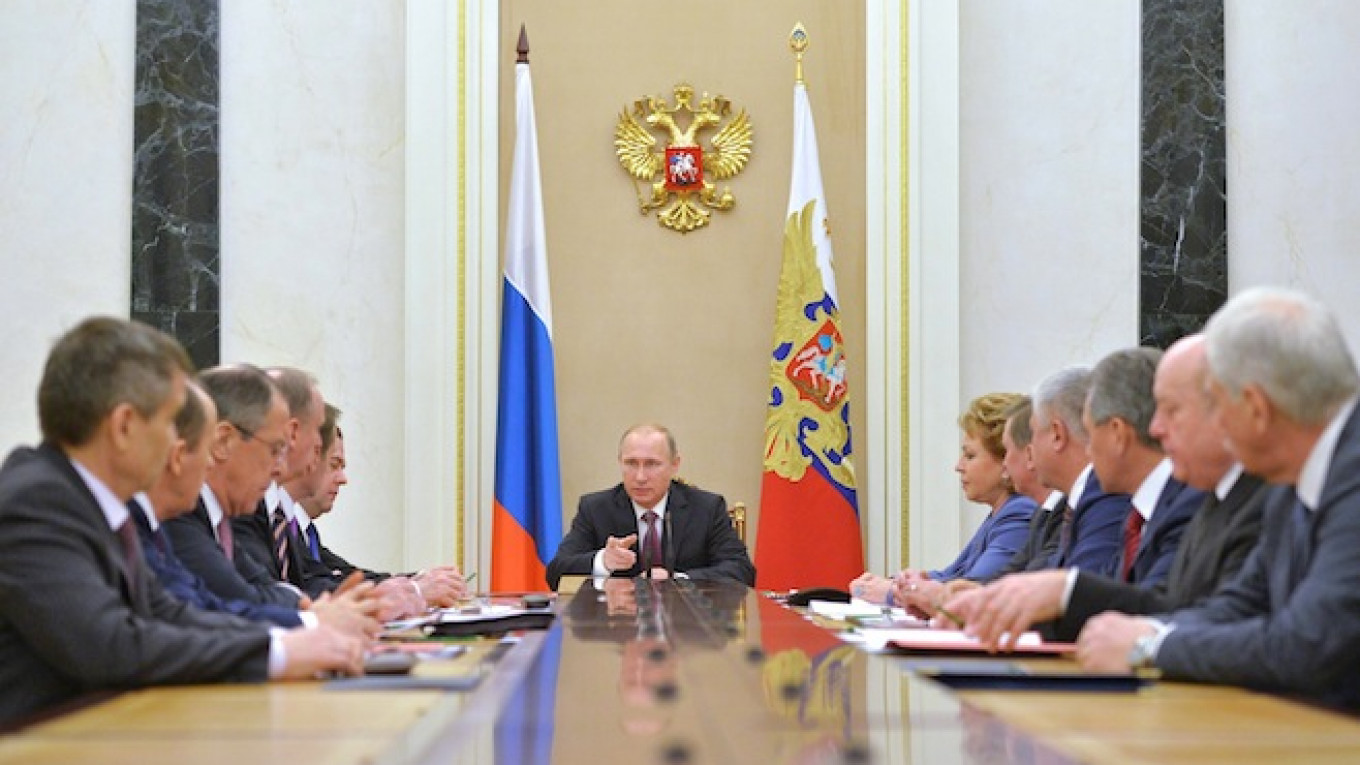Russian President Vladimir Putin has signed a new military doctrine, naming NATO expansion among key external risks, the Kremlin said on Friday, days after Ukraine made fresh steps to join the Atlantic military alliance.
Moscow's previous military doctrine, signed by Putin in 2010, also identified NATO expansion as a top risk to Russia, but the stakes have risen sharply over the past year.
Russia said this week NATO was turning Ukraine into a "frontline of confrontation" and threatened to sever remaining ties if Ukraine's hopes of joining NATO were realized.
The Kiev parliament's renunciation of Ukraine's neutral status on Tuesday in pursuit of NATO membership has outraged Moscow and deepened the worst confrontation between Russia and the West since the end of the Cold War after Russia's annexation of Ukraine's Crimea peninsula this year.
NATO has already boosted its military presence in eastern Europe this year, saying it has evidence that Russia orchestrated and armed a pro-Russian rebellion in eastern Ukraine that followed the overthrow of a Kremlin-backed president in Kiev.
Moscow denies supporting the rebellion, and is currently trying, along with Kiev and the rebels, to renew efforts to find a political solution to the crisis in eastern Ukraine.
It is likely to take years for Ukraine to meet the technical criteria for accession to NATO and, even then, there is no certainty that the alliance is ready to take such a decision.
A NATO official said Friday that the alliance respected the move by Ukraine's parliament, and so should Russia.
"Should Ukraine decide to apply for NATO membership, NATO will assess its readiness to join the alliance in the same way as with any candidate. This is an issue between NATO and the individual countries aspiring to membership," the official said.
A Message from The Moscow Times:
Dear readers,
We are facing unprecedented challenges. Russia's Prosecutor General's Office has designated The Moscow Times as an "undesirable" organization, criminalizing our work and putting our staff at risk of prosecution. This follows our earlier unjust labeling as a "foreign agent."
These actions are direct attempts to silence independent journalism in Russia. The authorities claim our work "discredits the decisions of the Russian leadership." We see things differently: we strive to provide accurate, unbiased reporting on Russia.
We, the journalists of The Moscow Times, refuse to be silenced. But to continue our work, we need your help.
Your support, no matter how small, makes a world of difference. If you can, please support us monthly starting from just $2. It's quick to set up, and every contribution makes a significant impact.
By supporting The Moscow Times, you're defending open, independent journalism in the face of repression. Thank you for standing with us.
Remind me later.


